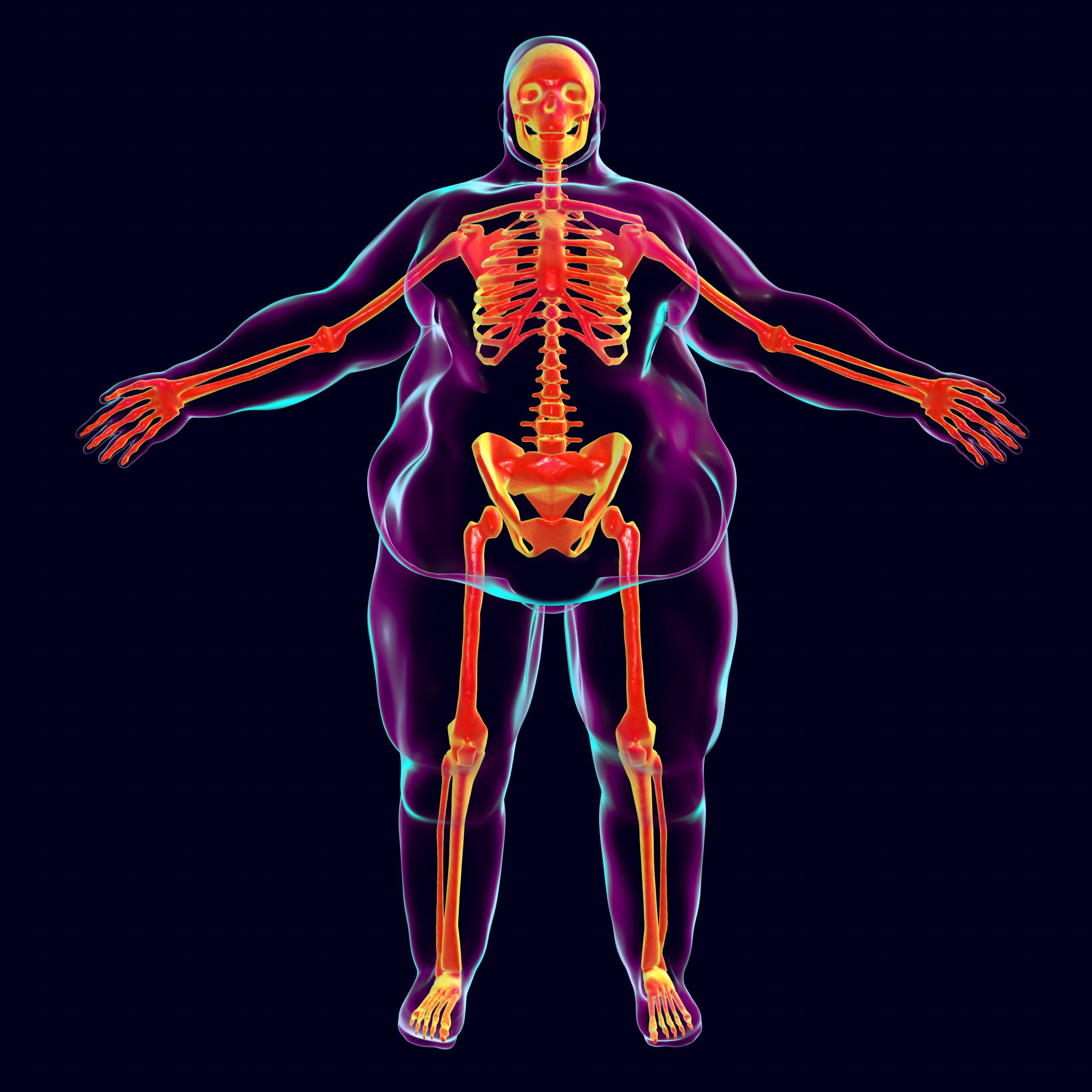How Being Obese In Your Mid-Life Increases Your Risk of Alzheimers
November 16, 2023
 813
813 
Did you know that more than one-third of adults in the world are overweight?
That’s a lot of people! Now, imagine a room full of 100 people.
Statistics say that around 50 of them will have some trouble with their memory as they get older, a condition called Alzheimer’s disease.
But what if these two things – being overweight and having memory problems – were connected?
Researchers at The University of Texas Health Science Center in San Antonio did a study and found something interesting.
They think that if you are overweight in the middle of your life, like in your 40s or 50s, you might have a higher chance of getting Alzheimer’s when you’re older.
This is a big deal because it could help us understand how to keep our brains healthy as we age.

Around the world, more and more people are becoming overweight.
This isn’t just happening in one country, but in many places!
At the same time, another big problem is affecting lots of families – Alzheimer’s disease.
Alzheimer’s is a sickness that makes it hard for people to remember things, and it usually happens when people are older.
Doctors and scientists are working hard to figure out why so many people are getting this disease.
To really understand how big of a problem this is, let’s think about some real people.
Like Mrs. Johnson, who is 55 years old and has been struggling with her weight for a long time.
She’s worried because her own mom had Alzheimer’s.
Or Mr. Lee, who is 60 and noticed that he’s forgetting things more often, just like his dad did before he was diagnosed with Alzheimer’s.
These are just examples, but they show us that these issues are real and can affect anyone.
Both of these problems – being overweight and Alzheimer’s – are not just numbers in a report.
They are about real people with real stories.
Scientists like the ones in San Antonio are trying to find out how these problems are linked, so we can all have healthier lives as we grow older.

Let’s talk about a really important study done by scientists at The University of Texas Health Science Center in San Antonio.
They wanted to understand more about Alzheimer’s disease and why it happens.
So, they looked at a big group of people – over 5,600! – from a project called the Framingham Heart Study.
This study has been going on for a long time and helps scientists learn about heart health and brain health.
The scientists were like detectives looking for clues in our genes.
Genes are like tiny instructions inside our bodies that make us who we are.
They studied 74 genes that have something to do with Alzheimer’s and found something really interesting about 21 of these genes.
In people who were overweight, these 21 genes behaved differently.
Some genes were not as active as they should be, and others were working overtime.
This is important because it helps us understand how being overweight can affect our brain and possibly lead to Alzheimer’s.

Now, let’s talk about why it’s especially important to think about your weight when you’re in the middle of your life, like in your 40s or 50s.
This time in your life is like a big, open window where what you do can really affect your health later on.
The study showed that being overweight during these years might make it more likely for you to get Alzheimer’s when you’re older.
It’s like planting seeds for your health in the future – what you do now can make a big difference later!
Something else the scientists found is that being overweight doesn’t affect everyone in the same way.
Men and women are different, right?
Well, it turns out that these differences also apply to how being overweight impacts the risk of getting Alzheimer’s.
The study showed that being overweight might be more of a risk for women than for men when it comes to Alzheimer’s.
This is a really important discovery because it helps doctors and scientists give better advice to everyone, whether they’re a man or a woman, about how to stay healthy as they get older.

You might be wondering how being overweight can affect our chances of getting Alzheimer’s.
It’s all about our genes and what they do in our bodies.
Think of genes like tiny workers inside us.
They have different jobs, like making sure our brain works right.
But when someone is overweight, it’s like some of these workers get confused and don’t do their jobs the way they’re supposed to.
In the study, the scientists looked closely at 21 genes that have a special role in Alzheimer’s.
Each of these genes has its own job, like helping brain cells talk to each other or cleaning up waste in the brain.
When someone is overweight, these genes might not work right.
For example, one gene might become lazy and not do enough work, while another might work too hard.
This mix-up can lead to problems in the brain and increase the risk of Alzheimer’s.

Being overweight doesn’t just affect the brain and the risk of getting Alzheimer’s. It can also lead to other health problems. For instance, it can make it more likely for someone to have heart disease or a stroke. Heart disease is when your heart has trouble pumping blood the way it should, and a stroke is when something stops the blood from getting to your brain. Both of these are really serious and can happen more often if someone is overweight.
There’s a strange thing that happens with people who get dementia, which is a bigger word for memory problems like Alzheimer’s. Before they even know they have dementia, they often start to lose weight without trying. It’s kind of ironic – after being overweight can increase the risk of dementia, then the dementia might cause them to lose weight. Scientists think this weight loss happens because the brain, which controls how hungry we feel, starts to work differently when dementia begins. This is another important piece of the puzzle in understanding how our body weight and brain health are connected.

Let’s take a moment to think about all the amazing things we’ve talked about. We learned that being overweight, especially in your 40s and 50s, might make it more likely for you to have memory problems like Alzheimer’s when you get older. Scientists found out that this has something to do with our genes – those tiny parts inside us that decide how our body works. They also discovered that being overweight can mess up the way some of these genes do their jobs.
This study is like a big sign telling us how important it is to take care of our health, not just for now, but for the future too. It’s like the choices we make today are little seeds we’re planting for our health when we’re older. So, eating right, staying active, and keeping a healthy weight aren’t just good for our body now; they’re also good for our brain when we get older.
I want to leave you with a question to think about: If the health choices you make today could help keep your brain healthy in the future, what changes would you start making right now? It’s something to think about, right? Remember, every little step we take towards being healthy can make a big difference in the long run, for our bodies and our brains!
References:

A new study suggests that a widely used sugar substitute found in diet sodas, chewing gum, and low-sugar yogurt may elevate insulin levels. This could increase the long-term risk of heart disease. “Artificial sweeteners have infiltrated nearly all types of food, making it crucial to understand their long-term health effects,” said Yihai Cao, senior author […]

Diet Coke has long been a fan-favorite among soda lovers who want a fizzy, guilt-free alternative to traditional soft drinks. While its zero-calorie, zero-sugar label makes it seem like a healthier option, the reality is far more concerning. Despite its undeniable popularity, Diet Coke’s nutritional profile has raised red flags among health experts for years. […]

New study shows that embracing an anti-inflammatory, plant-forward diet can support cognitive function and help reduce the risk of dementia. What You Eat Shapes Your Brain The food you eat doesn’t just impact your body—it also affects your brain. Research suggests that eating an anti-inflammatory, plant-based diet can help improve memory, focus, and overall brain […]